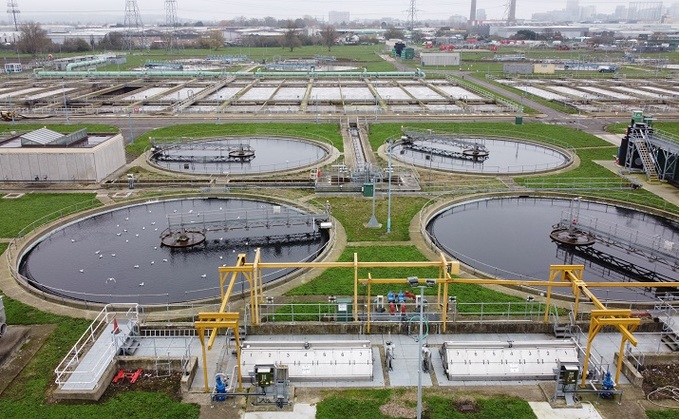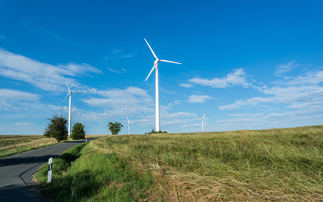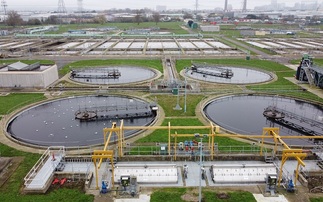Beddington sewage treatment works - Credit: Thames Water
Hogsmill and Beddington treatment works exporting enough green electricity to power more than 2,000 homes and businesses for six months
Thames Water has revealed it has converted two of its sewage treatment works into "poo power plants", capable of supplying electricity to more than 2,000 south west London homes and businesses for over half a year.
The water company's Hogsmill and Beddington sewage treatment works have joined Thames' Beckton and Maplelodge plants in converting sewage sludge into biomethane, which can then be used to generate low carbon electricity.
A by product of the treatment process, sewage sludge's solid and liquid materials are separated and treated in heated tanks, known as digesters, which kill bacteria and result in biomethane that can be used to power engines connected to electricity generators.
The resulting power is used at Thames Water sites to offset energy used in the production process, but surplus power is then exported to the grid to power homes and businesses. As such, Thames' Hogsmill site in Surrey is exporting enough electricity to power 900 properties, the water company claims, while its Beddington counterpart in Sutton is powering the equivalent of 1,200 homes.
Thames Water said it has worked with UK Power Networks to upgrade electricity network capacity for the project. At a local level, this has increased the export limit for the site meaning the converted wastewater can be used as an energy source.
"We are thrilled to introduce 'poo power' as a source of energy from two sites in south west London as we look to play a role in the future of renewable energy," said Ian Ruffell, head of waste water treatment for South London at Thames Water.
"The successful use of biomethane conversion at Hogsmill and Beddington shows the dedication of our teams to delivering this project and our own commitment towards reducing our carbon footprint."
According to its latest update, Thames Water collects 4.6 billion litres of wastewater per day from around 16 million customers, potentially providing a regular source of renewable power.
The firm's broader net zero roadmap includes plans to replace fossil fuels with biogas at all its major sewage works, as well as increasing the amount of solar power it generates by 50 per cent by 2025.
Having cut its emissions by almost 70 per cent since 1990, Thames Water claims to self-generated 536GWH of renewable energy in 2022/23, covering 27 per cent of its energy needs.
The company also aims to meet its share of the government's Sixth Carbon Budget by limiting the volume of operational and capital greenhouse gases by 78 per cent by 2035 versus 1990 levels.
The latest news as speculation continues to mount over the company's financial stability, after parent company Kemble defaulted on a £400m loan as the embattled firm struggles with a reported £18bn debt mountain. Thames Water's shareholders also recently backed away from proposals to inject more cash into the beleaguered business conditions attached to the deal by Ofwat.
Want to understand what is going on at the cutting edge of sustainability? Check out BusinessGreen Intelligence - the premier information for professionals focused on the UK's green economy.









